› Store › A Fresh Look at The Red Book: Reading the Liber Novus with Jungian Psychoanalysts
› Store › A Fresh Look at The Red Book: Reading the Liber Novus with Jungian Psychoanalysts
Online Only
Daniel Ross, PMHNP, Boris Matthews, PhD, LCSW, NCPsyA, and Guest Jungian Psychoanalysts
6 Monthly Saturdays, 9am-12pm
Jan 27, Feb 24, Mar 30, Apr 20, May 25, Jun 29
CEs Available
This program will be recorded. All registrants will receive copies of the recordings.
Registration is still open – you’ll receive the videos of past sessions upon registration. CEs only available for live attendance, not for video viewing.
$120.00 – $195.00
The Red Book, and more recently The Black Books, have led to reimagining Jung’s seminal concepts such as the Collective Unconscious, the Archetype, Individuation, and the Self. In this seminar we invite you to read The Red Book along with us and join in a series of six 3-hour salons in which we discuss and imagine our way into the space that became Jung’s The Red Book.
A leading Jungian Psychoanalyst guest will join Daniel Ross and Boris Matthews in each of the six salons. The first guest will be George Bright, a psychoanalyst from the United Kingdom. Echoing a student in his seminars on The Red Book, George Bright describes this work as “psychoactive material.” George Bright has been researching what he calls Jung’s more “esoteric” writings (The Red Book and Jung’s journals known as The Black Books) with a fresh look at his more “exoteric” writings (The Collected Works).
As Jung said in Memories, Dreams, Reflections, what he experienced and recorded in his journals, The Black Books, provided more than enough material for a life-time of work. Together, The Red Book, The Black Books, and the Collected Works constitute immediate experience and conscious, scholarly reflection over many decades.
As I (Daniel Ross) immersed myself in Jung’s Red Book, especially the first part, the “Liber Novus,” I came to realize that Bright’s perspective agrees with Sonu Shamdasani’s view that the decades-long “Freudocentric perspective” of Jung is no longer valid. Bright discovered that writing his 1912 Psychology of the Unconscious (translated by Beatrice Hinkel) was for Jung an act of hubris. In the “Liber Primus,” the first part of the Liber Novus, Jung calls for his soul: “My soul, where are you? Do you hear me?” By applying the scientific attitude to religion, an act of hubris, Jung had lost his soul: “I had judged her and turned her [my soul] into a scientific object.”
Over the years reading Jung, I (Boris Matthews) have more and more appreciated two of Jung’s early, foundational (circa 1916) statements. In the one, Jung emphasizes the necessity of adapting both to the world in which we exist–“outer adaptation”–and to what we essentially are–“inner adaptation”(CW 18, paras. 1084ff). In the second statement, Jung stresses the importance of following one’s own “life line,” i.e. the flow of one’s psychic energy (CW 7, paras. 500ff).
This salon will be online and live so that participants will be able to converse with the analysts and with each other. Anyone—lay or professional—interested in learning more about The Red Book and how it can be used personally and clinically is invited.
George Bright will inaugurate our series as our first guest beginning Saturday, January 27, from 9:00am to 12 noon CST. The remaining salons will take place monthly.
| Salon Schedule | |
| Monthly Saturdays, 9am-12pm North American Central Time |
|
| January 27 | Introduction by Sonu Shamdasani with George Bright |
| February 24 | Liber Primus: “My soul, where are you?” |
| March 30 | Liber Secundus: The Red One with Ashok Bedi |
| April 20 | Liber Secundus: The Incantations |
| May 25 | Liber Secundus: The Magician with Patricia Vesey-McGrew |
| June 29 | Scrutinies |
Learning Objectives
At the end of the series, attendees will be able to:
Required Reading
Each salon will focus on a section of The Red Book as outlined in our course description. We expect that you have and will be reading the Red Book along with us. The first salon on January 27th will be an introduction to The Red Book and will require you read Sonu Shamdasani’s Introduction of the Reader’s edition of The Red Book. The facsimile which includes the paintings is more expensive but not necessary for our discussion.
Speakers


Guest Jungian Analysts
George Bright was educated at Cambridge University and The London School of Economics. He is a Training & Supervising Analyst of the Society of Analytical Psychology and a co-founder of The Circle of Analytical Psychology, a London-based group engaged in the study of Jung’s Liber Novus and Black Books. He works in private practice in London. His 1997 paper Synchronicity as a basis of analytic attitude won the Michael Fordham Prize.
Ashok Bedi, MD is a Diplomat Jungian psychoanalyst and a board certified psychiatrist, a member of the Royal College of psychiatrists of Great Britain, a diplomat in Psychological Medicine at the Royal College of Physicians and Surgeons of England, a Distinguished Fellow of the American Psychiatric Association, Clinical Professor in Psychiatry at the medical College of Wisconsin in Milwaukee, a faculty member at the Analyst Training Program at the Carl G. Jung Institute of Chicago and a Psychiatrist at the aurora Psychiatric Hospital and the Aurora Health Care Network. He has been a psychiatric consultant to several agencies in Metro Milwaukee. Presently he is the consultant for the Sexual Assault treatment center at the Aurora Sinai Samaritan Hospital, The Residential Recovery Program at the Dewey Center at the Aurora Psychiatric Hospital and the Pastoral Counseling Service of Greater Milwaukee.
Trained in India, Great Britain and the US, he is interested in the emerging frontiers of spirituality and Healing and the synapses of the Mind, Body, Soul and spirit. He is author of the book, Path to the Soul, Weiser Books, 2000, Awaken the Slumbering Goddess: The Latent Code of the Hindu Goddess Archetypes, Booksurge Publishers, 2007, and the coauthor of Retire your Family Karma, Nicholas-Hays, Inc. 2003. His activities can be previewed at his website www.pathtothesoul.com
Dr. Bedi has been in practice in Milwaukee for over thirty years and specializes in Adult Psychotherapy and Jungian Psychoanalysis. He regularly presents lectures and seminars in India, Great Britain, Ireland and USA on the topic of the Spiritual and analytic dimensions of treatment, healing and personal growth. Over the last several years, he has been the International Association of Analytical Psychologist’s liaison person for developing Jungian training programs in India and travels annually to India to teach, train the consult with the Jungian Developing groups at several centers in India including Ahmedabad &, Bangalore. He leads the annual “In the Footsteps of Carl Jung in India” study group to several centers in India under the auspices of the New York Jung Foundation.
Patricia Vesey-McGrew, MA, NCPsyA is a diplomate Jungian Psychoanalyst in private practice in Cambridge and Rockport,
MA. She is a supervising and training analyst at the C.G. Jung Institute of Boston, where she is a past president and a faculty member. Additionally, she is Deputy Editor (US) for The Journal of Analytical Psychology, a member of the International Association of Analytical Psychology, a member of the Council on Accreditation of ABAP, and a past member of the NAAP Board of Directors. She has presented papers and workshops internationally on such topics as The Dead Mother and The Power of Dreams. Her most recent publication is “Getting on Top of Thought and Behavior Patterns” in Jungian Psychoanalysis, Volume Three.
Other Guests will be listed as they are secured.
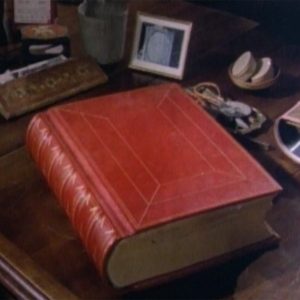
In-Person Only
George Bright, Jungian Psychoanalyst
Friday, May 17, 2024 | 1-4pm
Sheraton Suites Chicago Elk Grove (Shuttle Service from Ohare Airport by Rainbow Transportation)
3 CEs available
We plan to record this program and will make it available for sale at a later date.
Registration closes May 10
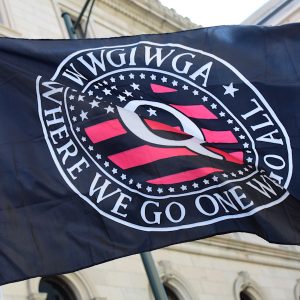
Online Only
Vlado Šolc, M.S., LCPC, CSAC, ICS, Jungian Analyst
Thursdays, March 7, 14, 28 & April 4 | 5:00 – 6:15pm Central Time
5 CEs Available
This program will be recorded. All registrants will receive copies of the recordings.
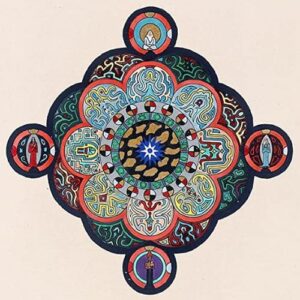
Nora Swan-Foster, MA, ATR-BC, LPC, NCPsyA
In-Person Only (Will Be Recorded)
Friday, December 8, 2023
1–4pm
Grace Place – 637 South Dearborn St, Chicago, IL 60605
3 CEs Available (Purchase Here)
SOLD OUT
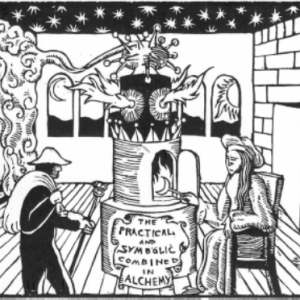
In-Person & Online
Ashok Bedi, MD, Jungian Analyst
September 30, 2023 | 8:30am-4pm
324 West Vine Street, Milwaukee, WI 53212 & via Zoom
6 CEs Available (Purchase Separately HERE)
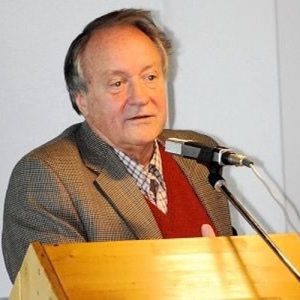
In-Person Only
Date/Time: May 19, 5:00pm
Location: Crystal Room, Union League Club (65 West Jackson Boulevard, Chicago, IL 60604)
2 CEs Available (Purchase Separately)
This event will not be recorded
Registration is closed

This program is now available as a Self-Study CE Course HERE
In-Person & Zoom
Ashok Bedi, MD & Robert BJ Jakala PhD
May 6 | 9:00AM-3:00PM
324 West Vine Street, Milwaukee, WI 53212
$120 | $60 Students
5 CEs Available (Purchase Separately)
Zoom link & parking information will be emailed to all ticket holders upon registration

Certification of the Chicago Society of Jungian Analysts to train analysts is granted by The International Association of Analytical Psychology. The C.G. Jung Institute of Chicago is accredited as a psychoanalytic training institute by The American Board for Accreditation in Psychoanalysis, Inc. The Institute is approved by the Illinois Department of Professional Regulation to sponsor continuing education for Psychologists (License No. 268000106), Social Workers and Clinical Social Workers (License No. 159-000215), Marriage and Family Therapists (License No. 168-000123), Professional Counselors and Clinical Professional Counselors (License No. 197-000022).

This search engine will search our public programs, the Jungianthology Podcast & Blog, and our store.
To search only the store, visit our Store page.
If you’re looking for a Jungian Analyst, use our Find an Analyst search engine or browse the Chicago Society of Jungian Analysts page.